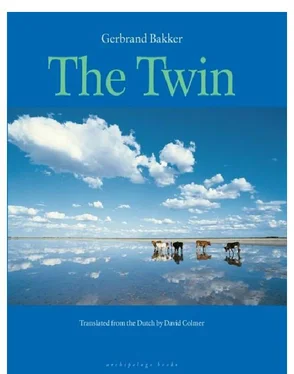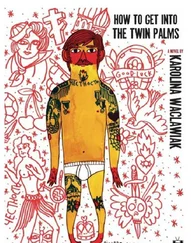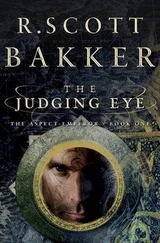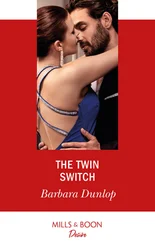“Is that far?”
“About three miles. We can go tomorrow by car.”
“Maybe I’ll take the bike,” he says. He walks over to the staircase door, leaving wet footsteps on the cold floor.
“Doesn’t that towel need to go in the wash?”
He turns. “Now?”
“Sure, why not?”
He pulls off the towel and bends to dry his feet. Then he straightens up and tosses me the towel. I catch it, the warm, damp material flaps around my forearm. For a moment he stands there, proud and embarrassed at once. The scar over his left ear is more visible than usual, maybe because of the hot water. Then he opens the door and disappears upstairs. His first steps up remind me of the supple way the young tanker driver leaps into his cab.
Henk and Helmer. At primary school here in the village there were twin girls in our class. Henk and I had a desk near the window, next to an enormous potted plant with dusty, leathery leaves. The twin girls sat behind us. Of course, we were boyfriends and girlfriends, that was expected. They were relationships in alternating combinations, and we were the ones who alternated. The twin girls looked a lot less like each other than we did.
Henk was faster than me; my reactions were always too slow. When I think back on those days, Henk is always doing something — turning onto the road on his scooter; jumping up from his school desk; answering a question while the headmaster stands waiting in his mustard dustcoat, fingertips brown from Camel Plains — I still have to say “eh?” before following him. I was never really with it. I daydreamed; he acted. After a while the twin girls knew when we switched. They didn’t mind and neither did we, we had a role in the class to fall back on.
Henk and I wore the same clothes and got our hair cut one after the other by the village barber — “Nice and easy,” he said every time to Mother or us — and we both had red scooters. But still, there were differences. When we wore shirts, Henk’s was always hanging half out of his trousers or his collar was turned up. His hair was unrulier than mine (during the haircut he’d stop swallowing. Even before we were out of the door, he’d spit on his hand and run it through his hair. He didn’t care if the barber was watching) and his scooter was always ten feet ahead of mine.
It was — looking back, always looking back — as if he knew exactly what he wanted, while I never had a clue. About anything at all. I can still see the bottle of birch lotion next to the barber’s mirror, a bottle with a rubber vaporizer. Henk thought it was foul, I wasn’t so sure. It had something, that smell.
It wasn’t until we were eight that I moved to my own bedroom (where Father now spends his days). I lasted three nights alone. During the fourth night I sneaked back into my real bedroom and crept under the blankets with Henk. “What are you doing?” he whispered, just for something to say. I didn’t answer. He turned onto his side and I nestled up against him, pushing my feet between his. Even though it had been more than seven years since we were breast-fed and the layer of fat had long since disappeared from our feet, it is possible that it was on that night that I formed the memory I can’t possibly have: summertime, my feet feeling other feet and Mother’s face seen from below, above a pale soft swelling. Her chin and, most importantly, her slightly bulging eyes, directed not at me, but at a point somewhere in the distance: thin air, the fields, maybe the dyke.
He never came to my room. My room was a lonely room, an abandoned room, I should have moved downstairs long ago. Father doesn’t understand the loneliness of that room. Towards the end of primary school, when the twin girls had moved away and we were no longer obliged to be anyone’s boyfriends, I stopped going into Henk’s bedroom every night. It became once a week, sometimes twice.
When the frost flowers were on the windows, we lay in our pajamas under a pile of blankets. When it was warm, we lay naked under a sheet. We molded ourselves to each other’s bodies. Together we rode our bikes to Monnickendam: Henk to the agricultural college, me to high school. We were separated all day, but in the afternoon we would come riding up from different directions and simultaneously lay our forearms on the handlebars to defy wind and rain together. We celebrated our birthday together, we had friends together and, up to fourteen, we showered together. Until the Saturday night that Father split us up. “First one, then the other,” he said. “Now, now,” Mother said later, when we went to her to complain. “You’re not little boys any more.” So what? we thought, but we didn’t say it. Our grandparents couldn’t even tell who was who from our voices. We still wore the same clothes, we had no need to differentiate. To the dentist together (even if I did always have more cavities than Henk), swimming together in Lake IJssel, getting clipped over the back of the head together when we gagged and tried to push away our plates of boiled endive. On that freezing day in February, when Father almost dared to drive out past the embankment, we did not have any difficulty at all in merging like a pair of Siamese twins. It was entirely automatic. If he had risked it and the ice, despite its thickness, had failed to hold the car, we would have drowned as one person.
In the summer we went to the Bosman windmill. Facing each other, we hung from the iron struts while the sheep looked on. Grease, sun-kissed skin, dry grass and salty sweat. High clouds and larks we couldn’t see, no matter how hard we tried. We belonged together, we were two boys with one body.
But along came Riet. When I went into his bedroom in January 1966 and tried to climb into his bed, he sent me away. “Piss off,” he said. I asked him why. “Idiot,” he said. I left his bedroom and heard him sigh contemptuously. Shivering, I walked back to my own bed. It was freezing, the new year had just begun and the next morning the window was covered from top to bottom with frost flowers. We had become a pair of twins with two bodies.
The farmhand was as straightforward as his name: Jaap. Big hands, a square face, short blond hair, a sturdy build. His nose was crooked, one of his front teeth was chipped. To me he was always old — he came to work for Father when Henk and I were about five. In the autumn of 1966 he must have been about thirty. Old, in other words, then. Very young now.
Henk and Riet had done it (and I had watched), I had been banned from Henk’s bedroom for more than six months, I wasn’t Father’s boy (especially now that I was left alone and would soon be going to Amsterdam to learn “big words”), Mother was at a complete loss (our alliance did not yet exist, she avoided looking at me) and August remained warm, golden yellow. It was weather for shorts, but my half-body was cold. I didn’t know where to creep off to.

Jaap was always there, like a cow, a sheep, the harrow or the chicken coop — he was part of the farm. “Hi, boys,” he said when he saw us. Apart from the skating, we were almost always together when we bumped into him. He kept a gentle distance, maybe because we were the farmer’s sons, maybe because he didn’t actually have anything to say to us. He hardly ever came into the house. He went to the laborer’s cottage to drink coffee and eat. He was single when he came and single he stayed. At first his relatives sometimes came to visit, later that stopped.
During the night I lay on the floor of the new room and couldn’t sleep because I kept seeing that movement, I remembered the incident with Father and the hand. Only then did I realize that Henk hadn’t been there. It was Father, the farmhand and me. And I knew — lying under the window, with the keyhole as a disturbing, black, female patch still there behind my eyelids — that that was why the farmhand had looked at me, because I was standing behind Father alone.
Читать дальше













